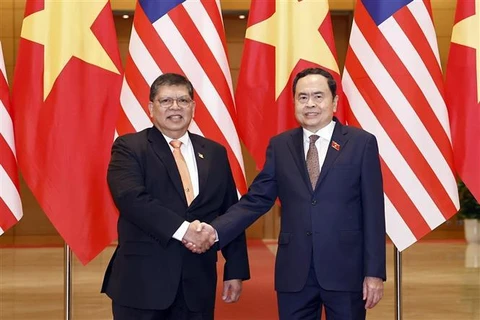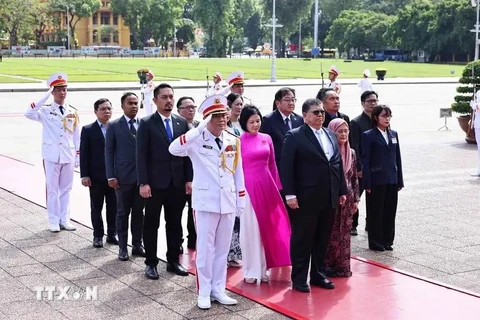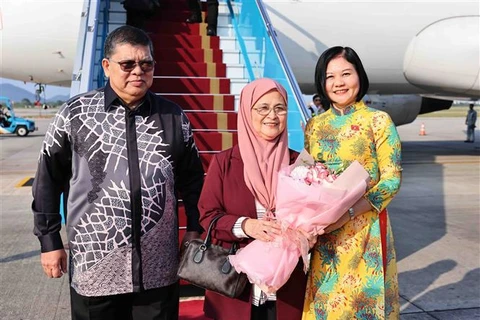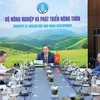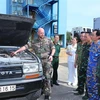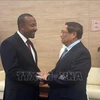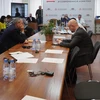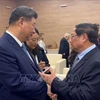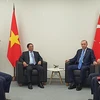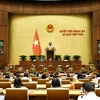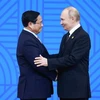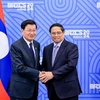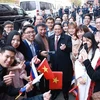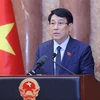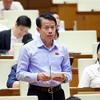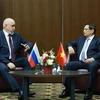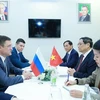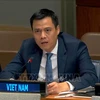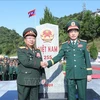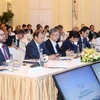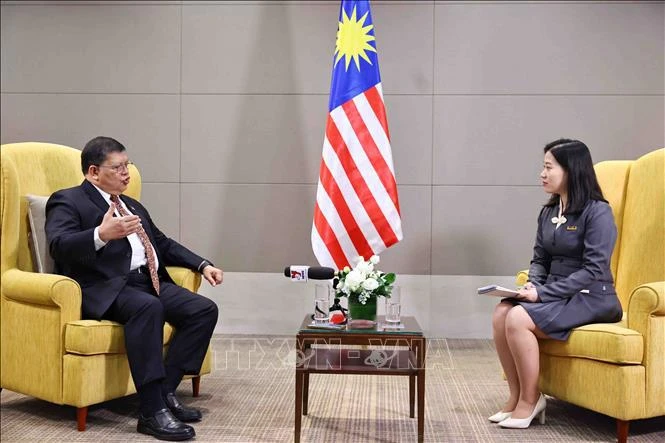
Hanoi (VNA) - Speaker of the Malaysian House of Representatives Tan Sri Dato' Johari Bin Abdul is on an official visit to Vietnam from October 22-25.
On this occasion, the Speaker granted an exclusive interview to the Vietnam News Agency (VNA).
Reporter: How do you assess the strategic partnership between Malaysia and Vietnam, particularly in terms of parliamentary cooperation?
Mr Tan Sri Dato' Johari Bin Abdul: Malaysia and Vietnam have enjoyed strong relations since establishing diplomatic ties over 50 years ago, and this relationship has continued to improve over time. I believe we are now at the peak of this partnership. We are long-time friends, growing and fostering an even better relationship together.
Malaysia will chair ASEAN next year, and Vietnam is my first official visit as the upcoming Chair of AIPA 46. Here, I had a productive dialogue with Vietnam’s National Assembly Chairman Tran Thanh Man marking a pivotal moment in strengthening parliamentary diplomacy between Malaysia and Vietnam.
The discussions underscored the remarkable progress in bilateral relations, with trade between the two nations reaching close to 10 billion USD in the first eight months of 2024. Additionally, Malaysia has become the second-largest source of ASEAN tourists to Vietnam, with over 360,000 Malaysians visiting in the first nine months of 2024.
The solid growth in our bilateral ties reflects the strong foundation on which we can build further collaboration. As Malaysia assumes the AIPA Presidency under the theme of ‘Inclusivity and Sustainability,’ we are dedicated to deepening regional integration and advancing parliamentary diplomacy that benefits all ASEAN member states.
Reporter: In your opinion, what is the significance of this visit to Malaysia-Vietnam relations, and what are the key outcomes?
Mr Tan Sri Dato' Johari Bin Abdul: During the comprehensive discussions, both leaders explored avenues to enhance cooperation in key sectors such as high technology, tourism, trade, and energy. The Vietnamese Parliament affirmed its commitment to fostering an environment conducive to expanded cooperation.
A significant highlight of the discussions was Vietnam's commitment to developing its halal industry, demonstrated through a large-scale halal conference held in Hanoi on October 22, attended by Prime Minister Pham Minh Chinh. Vietnam has expressed keen interest in Malaysian expertise for training Vietnamese enterprises and local authorities on halal production processes and certification.
A key outcome of the talks was the potential signing of a cooperation agreement between the National Assembly of Vietnam and the Parliament of Malaysia, aimed at bolstering legislative collaboration and increasing parliamentary exchanges.
Both leaders also highlighted the importance of supporting their respective communities, with Malaysia acknowledging the positive contributions of the Vietnamese community since the formation of the Malaysia-Vietnam Friendship Association in 2022.
This visit reaffirms the shared commitment of both nations to ASEAN centrality and unity. Our discussions have set the stage for deeper parliamentary collaboration, particularly in areas such as human resource development, technological innovation, and educational exchange.”
These engagements in Vietnam signal the beginning of Malaysia’s leadership in AIPA, where it aims to drive inclusive growth, digital innovation, and sustainable development across the ASEAN region, while reinforcing parliamentary cooperation among member states.
Reporter: Food security, renewable energy, and ASEAN cooperation are among the areas Malaysia will focus on as ASEAN Chair in 2025. Could you elaborate on these issues, and what does Malaysia hope for in cooperation with Vietnam in these and other potential areas?
Mr Tan Sri Dato' Johari Bin Abdul: Food security is a critical issue because, as we’ve seen, supply chain disruptions can have a significant impact on societies. However, if you look at the entire ASEAN region, we have the land, the people, and the technology. By combining these strengths and exploring areas for collaboration, we can maintain our own food supplies and reduce dependency on external sources.
I believe Vietnam is advanced in agricultural technology and can share some key expertise. By doing this, we might not need to rely on external imports, as Vietnam can supply food within ASEAN.
The second focus is renewable energy. In Southeast Asia, we have abundant opportunities to enhance our energy resources. We have vast hydroelectric potential, solar energy due to our location near the equator, and even the ability to use algae to produce jet fuel. By harnessing these resources, we can share surplus energy among countries. By focusing on our strengths and working together, the 680 million people in ASEAN can improve their standard of living and support each other in achieving a higher quality of life.
Reporter: Thank you for your interview!
